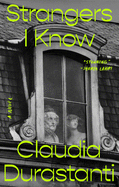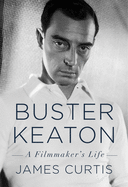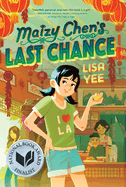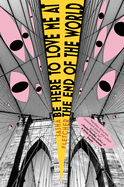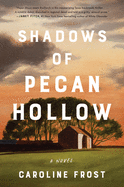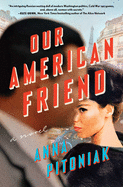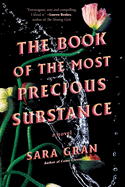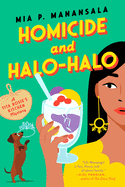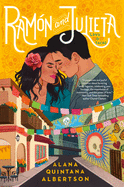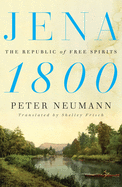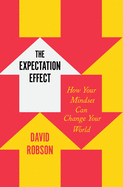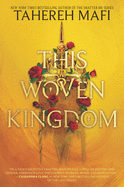Tuesday, February 15, 2022
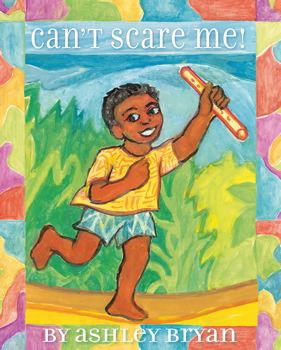 Beloved children's book author and illustrator Ashley Bryan embodied joy.
Beloved children's book author and illustrator Ashley Bryan embodied joy.
If you've never heard him recite "My People" by Langston Hughes, listen here. He loved Shakespeare and Nikki Giovanni and Eloise Greenfield--especially her poem "Things." He didn't recite so much as sing the lines of poetry he shared, and with children, he always held out the book--even though he knew every word by heart--so they would make the connection between the phrases he spoke and the words on the page. Literacy--both textual and visual--was the passion he preached, in the most loving, uplifting way.
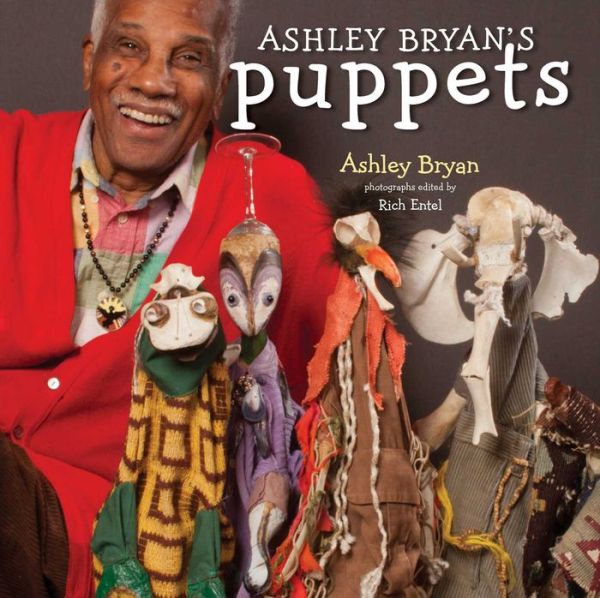 His artwork evokes stained glass. Sunlight streams through his delicate watercolors, in the pages of Beautiful Blackbird (winner of the Coretta Scott King Illustrator Award; Atheneum, $19.99) and Can't Scare Me (Atheneum, $16.99), whether he was recounting an elegy or a folktale brimming with humor. His handmade puppets took on a regal quality. Made of shells and driftwood from the beaches of his beloved Little Cranberry Island (Islesford, Maine), scraps of fabric, stray buttons and bits of yarn, they commanded respect and attention from children everywhere, memorialized in Ashley Bryan's Puppets (Atheneum, $19.99).
His artwork evokes stained glass. Sunlight streams through his delicate watercolors, in the pages of Beautiful Blackbird (winner of the Coretta Scott King Illustrator Award; Atheneum, $19.99) and Can't Scare Me (Atheneum, $16.99), whether he was recounting an elegy or a folktale brimming with humor. His handmade puppets took on a regal quality. Made of shells and driftwood from the beaches of his beloved Little Cranberry Island (Islesford, Maine), scraps of fabric, stray buttons and bits of yarn, they commanded respect and attention from children everywhere, memorialized in Ashley Bryan's Puppets (Atheneum, $19.99).
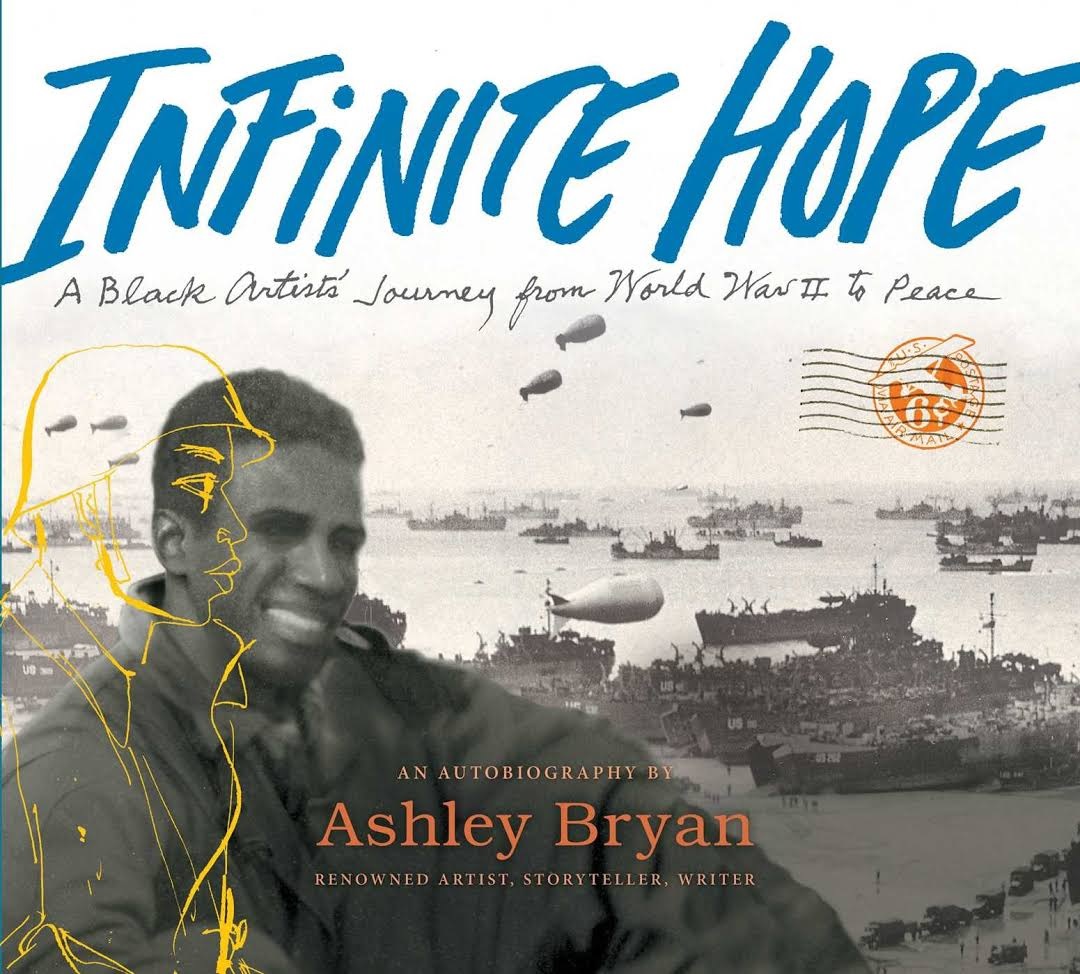 When he died on February 4 at the age of 98, Ashley Bryan had lived through nearly a century of challenging times, including enduring World War II with its huge casualties and racist policies, which he wrote about in Infinite Hope. Through his artwork he preserved his indomitable spirit during a soul-crushing period. His family has established the Ashley Bryan Center to continue his legacy.
When he died on February 4 at the age of 98, Ashley Bryan had lived through nearly a century of challenging times, including enduring World War II with its huge casualties and racist policies, which he wrote about in Infinite Hope. Through his artwork he preserved his indomitable spirit during a soul-crushing period. His family has established the Ashley Bryan Center to continue his legacy.
Shelf Awareness called Infinite Hope "a striking exhibition of a master artist and national treasure." Thanks to the uplifting and inspiring body of work Ashley Bryan leaves behind, generations of children will be able to benefit from his everlasting and infectious message of love and joy. --Jennifer M. Brown, senior editor, Shelf Awareness
Strangers I Know
by Claudia Durastanti, transl. by Elizabeth Harris
"The story of a family is more like a map than a novel," Claudia Durastanti's narrator reflects in Strangers I Know, "and an autobiography is the summation of all the geologic ages you've passed through." The story Durastanti charts in her English PEN Award-winning fourth novel is full of discord, and the Italian author seems at home in the unsettled territory between these genres. Across 40 chapters arranged by theme rather than strict chronology, she examines language as "a technology that reveals the world," grappling with the power--and limitations--of the written word to make the strangeness of one's own life legible.
Durastanti's nearly unnamed narrator (readers learn only in passing that her name is also Claudia) is born to deaf Italian parents. They give conflicting accounts of their first meeting, and they found in each other "someone not interested in facing disability with bravery or dignity, but with recklessness and oblivion." Durastanti traces the reverberations of their tempestuous marriage and spectacular divorce across her narrator's youth and young adulthood, exploring how they influence her relationship to language and eventually her maturation as a writer. Every engagement with art and popular culture becomes an act of translation: she appreciates the music of John Cage for its "attention to everything diverging from our normal way of hearing"; elsewhere, she considers the aesthetic shortcomings of television closed captioning. The author handles these discursive passages with fearless poetic verve, making them some of the most resonant in the book. Incisive and profound, Strangers I Know is a tremendous work by Durastanti and translator Elizabeth Harris. --Theo Henderson, bookseller at Ravenna Third Place Books in Seattle, Wash.
Discover: Claudia Durastanti's genre-defying novel delivers profound insights into the connections between self, language, art and disability.
Be Here to Love Me at the End of the World
by Sasha Fletcher
Poet and novelist Sasha Fletcher blends heartbreak and unexpected hope in Be Here to Love Me at the End of the World, a surreal exploration of an impending apocalypse. Amid hip-high snowstorms and mountains of steaming trash, Sam and Eleanor are in love. Ever since the sky split open when they met at summer camp, the world has tried to push them apart; stubbornly, they stay together. And as news of nuclear warfare and a bomb soon to be dropped on New York City sends people into a tailspin, Sam and Eleanor continue to find meaning in good dinners, old movies and their unshakeable love for one another.
While this is a love story at its core, it is also a novel of rich digressions, defined by its narrator's tendency to dip in and out of time, touching in equal measure on momentous historical events and quiet, winter nights. As the end draws near, Fletcher (It Is Going to Be a Good Year) suggests, time unspools into a collection of forevers that are made meaningful by moments of minute happiness, pockets of unanticipated safety. The no-nonsense tone of Fletcher's prose--as he, for instance, juxtaposes the detailing of park acreage with the biblical weather disasters that Sam and Eleanor experience in the "present"--creates consistent emotional tension. Cinematic in the visual imagery it conjures and consistently surprising in where it focuses its narrator's pristine attention, Be Here to Love Me is sure to leave a lump in readers' throats, rather than leaving them with a sense of doom. --Alice Martin, freelance writer and editor
Discover: The timely Be Here to Love Me at the End of the World is a tender and turbulent, if unusual, testament to the force of love in the midst of disaster.
Shadows of Pecan Hollow
by Caroline Frost
Caroline Frost's impressive debut novel, Shadows of Pecan Hollow, provides a comprehensive look at a woman who, having experienced only rejection as a child, is taken in by a charming criminal until she finds the courage to break away.
Kit Walker, abandoned as a newborn and then shuttled between foster homes she repeatedly fled, experienced a childhood that was "not lived but endured." At age 13, she meets charismatic Manny Romero while trying to steal food from a Texas gas station. For years he treats her like a daughter, grooming her to serve as his partner in thefts, cons and, eventually, armed robbery. Manny gives Kit her first taste of stability and makes her feel that she is more than "a discarded girl with a made-up name." He also controls her with extreme kindness, followed by excessive cruelty (his "careful calm gave way to a bulldozing rage") and, when she matures, sex. Pregnant at 19, Kit refuses to have an abortion and finally leaves Manny. She and her daughter, Charlie, settle in the small Texas town of Pecan Hollow. Emotionally hampered, Kit struggles to be a good mother but knows she is not. Manny finds Kit after a 14-year prison stint, his propensity for violence and his controlling nature more intense than ever. When he learns Charlie is his daughter, Manny wreaks havoc on Pecan Hollow.
Although the plot momentarily stalls in the novel's midsection, Frost's skill at sculpting a character both sympathetic and prickly shines in Shadows of Pecan Hollow. --Oline H. Cogdill, freelance reviewer
Discover: In Caroline Frost's impressive debut novel, a woman who spent a childhood experiencing rejection must face down the charming but violent con-man who shaped her.
Mystery & Thriller
Our American Friend
by Anna Pitoniak
Anna Pitoniak's twisty third novel, Our American Friend, clearly draws at least some inspiration from former First Lady Melania Trump. But this fast-paced combination of thriller, Cold War history and sharp commentary on making one's way in the world as a woman stands on its own. Pitoniak's novel follows two very different women: Lara Caine, a Russian ex-model married to a blowhard U.S. president, and Sofie Morse, the young journalist invited to write Mrs. Caine's biography.
In classic thriller fashion, Pitoniak (The Futures; Necessary People) begins her story near the end: Sofie and her husband, Ben, are living under the radar in Split, Croatia, after a hinted-at scandal involving the First Lady. How they got there, and why, is a mystery that slowly unravels over the following chapters, as readers learn about Sofie's background and how she became drawn into Lara Caine's rarefied life. As the First Lady tells Sofie her story, the narration begins shifting between Sofie's present-day experiences and Lara's life growing up as the daughter of a diplomat in postwar Moscow and Paris. Readers get glimpses into Lara's privileged childhood, the challenges of her teen years and the secrets the public doesn't know. As Sofie absorbs more and more of Lara's story, she can't shake the question: Why has Lara decided her biography should be written now? And why did she choose Sofie to write it?
With sharp observations on everything from D.C. insider politics to the mundane details of family life, Our American Friend is both an engaging feminist thriller and a meditation on the ways history often surprises even the people who make it. --Katie Noah Gibson, blogger at Cakes, Tea and Dreams
Discover: Anna Pitoniak's smart, twisty third novel combines Cold War history with espionage and sharp feminist social commentary.
The Book of the Most Precious Substance
by Sara Gran
A rare handwritten book holds the key to great wealth and power for anyone who performs the black magic spells listed within. Those seeking the book are already rich and powerful, but they want more and would kill to get their hands on it in Sara Gran's thought-provoking, erotic thriller The Book of the Most Precious Substance.
Lily and her husband, Abel, are successful writers until Abel contracts an illness that forces Lily to sell first-edition antique books to pay for his treatments. She's thrilled when another bookseller offers to split a million-dollar commission if Lily helps him find an elusive book called The Book of the Most Precious Substance. Before Lily can begin her search, her colleague is killed, leaving Lily without the name of the rich potential buyer. Lily enlists her well-connected friend Lucas to help her find both the buyer and the book. Their quest turns unexpectedly sexual in nature, with elements of black magic, and results in a dangerous international chase for a manuscript that doesn't want to be found--and seekers who will pay any price for it.
How far would some people go for unlimited wealth and power? Why are immense riches and influence not enough for some? Gran (the Claire DeWitt series) poses answers to these questions, particularly when Lucas asks the owner of a copy of the rare book, "You have money. You have power. What did you want that you didn't have?" and the owner replies, "Everything." Some of the characters may be insatiable, but readers will find The Book of the Most Precious Substance's ending immensely satisfying. --Paul Dinh-McCrillis, freelance reviewer
Discover: In this erotically charged thriller, a financially strapped bookseller's hunt for a rare book of magic spells puts her in a dangerous conflict with the world's most powerful people.
Homicide and Halo-Halo
by Mia P. Manansala
Cozy mystery label aside, Mia P. Manansala's enticing second installment of her toothsome Tita Rosie's Kitchen series opens with a warning: "I wrote Homicide and Halo-Halo while both me and my protagonist, Lila, were in rather dark places in our lives." Introduced--and nearly killed--in Arsenic and Adobo, Lila "is still working through the repercussions" of solving a murder and avoiding her own a few months earlier. Being distracted means she's not quite the equal business partner to BFF Adeena and Adeena's girlfriend, Elena, at their Brew-ha Café. She's somehow juggling two eligible single men--Adeena's lawyer brother, Amir, and dentist Dr. Jae. Mostly Lila is practicing denial, despite panic attacks, truculently resistant to calling therapist Dr. Kang.
As if she needed more pressure, Lila agrees to be the last-minute replacement judge for the Miss Teen Shady Palms Pageant. Lila, as a former winner, might be experienced, but she's certainly unprepared for another murder when Rob Thompson--whose family underwrites the pageant--is found dead. Lila's cousin Bernadette becomes the prime suspect, and Lila knows she's got to vindicate her family's innocence--again.
Manansala references her own "mental health issues that a worldwide pandemic brought about," channeling those challenges into helping Lila and her family heal. Food is the balm: Lila's aunties are always ready with deliciously nourishing meals and Lila herself finally reclaims her baking mojo. The extended family's Filipina American heritage becomes a bottomless vat of strength from which to rise. And for salivating readers, Manansala even appends tempting recipes at book's end. Dig in! --Terry Hong, Smithsonian BookDragon
Discover: Mia P. Manansala's follow-up to Arsenic and Adobo stars Lila and her Shady Palms family and friends who again manage to solve another murder, undeniably fueled by delectable meals.
Romance
Ramón and Julieta (Love and Tacos)
by Alana Quintana Albertson
Alana Quintana Albertson (the Heroes Ever After series) brings Romeo and Juliet to San Diego's Barrio Logan in Ramón and Julieta, a romance about star-crossed lovers that tackles issues of class and gentrification. Ramón Montez grew up wealthy, thanks to the success of his father's Taco King fast food chain. He has reservations about his father's purchase of a strip of commercial property in Barrio Logan, a Mexican American neighborhood known for its vibrant community and deep cultural roots. Julieta Campos is a talented chef and runs a family restaurant with her mother in the Barrio, but she wasn't able to raise the money to buy the buildings before Taco King made an offer. At a Day of the Dead celebration, in full costume and makeup, Ramón and Julieta meet. Their instant connection launches a romance complicated by a decades-old theft.
Ramón's father and Julieta's mother fell in love one summer in Mexico, but they were separated when the elder Montez returned to the United States--and stole Julieta's family's fish taco recipe to start his business. Already uneasy in his role at Taco King, Ramón is horrified to learn of the theft and reconnects to his culture, while Julieta struggles to find a way to preserve her community in the face of seemingly inevitable gentrification.
Ramón and Julieta is a modern but timeless take on a Shakespearean classic, told with a big heart, love of culture and plenty of heat. --Suzanne Krohn, librarian and freelance reviewer
Discover: Romeo and Juliet comes to a Mexican American neighborhood in this big-hearted contemporary romance full of food, family and heat.
Biography & Memoir
Buster Keaton: A Filmmaker's Life
by James Curtis
As his previous biographies of W.C. Fields, Spencer Tracy and Preston Sturges attest, film historian James Curtis doesn't write inconsequential profiles, he writes definitive biographies. Curtis's Buster Keaton: A Filmmaker's Life is the masterclass biography fans of the "Great Stone Face" comedian have been hoping for. This hefty, swift-moving book is both a superbly researched and fascinating account of the star's life and an astute, articulate and informed look at the many classic films and shorts he wrote, directed and starred in.
Buster Keaton (1895-1966) was only a toddler when he joined his parents as "The Three Keatons" in a comedic/acrobatic vaudeville act. The team found great success until Keaton's father's alcoholism broke up the act in 1917. Roscoe "Fatty" Arbuckle recruited Buster Keaton to appear in a series of short film comedies. With Arbuckle as his mentor, Keaton was soon directing, writing and starring in his own films. Between 1920 and 1929, Keaton created 32 classic film comedies (19 shorts and 13 features), mostly made for his own company. In 1928, Keaton made the colossal mistake of signing with MGM, a studio that stripped him of his writing and directing roles and wanted him only as an actor. His films declined at the same time his marital woes and alcoholism increased. MGM fired him in 1933. He continued to work as a supporting actor (and uncredited gag writer) until his films were revived in the 1950s, which brought a heralded career resurgence.
Film buffs will cherish this monumental biography of a phenomenally talented but troubled comic filmmaker. --Kevin Howell, independent reviewer and marketing consultant
Discover: This monumental, definitive biography offers a masterclass on Buster Keaton's life and films.
History
Jena 1800: The Republic of Free Spirits
by Peter Neumann, transl. by Shelley Frisch
Poet and philosopher Peter Neumann's Jena 1800: The Republic of Free Spirits, translated from the German by Shelley Frisch, captures the epic year in which a group of free thinkers set up house in the history of ideas. In 1799, the French Revolution came to its ignominious end via Napoleon's coup d'etat, but in the German city of Jena, the revolution of ideas was just getting started. With only about 5,000 residents, most of them university students, Jena was considered the intellectual and cultural center of Germany at the beginning of the 19th century, offering a haven for the intellectually intrepid to rethink the world and its ways. In 1800, a small circle of friends and fellow "free spirits" resolved to do just that, living and working together to create a republic of the mind.
The coruscant, unconventional thinkers who converged on Jena in 1800-1801 included the elder statesman and revered writer Johann Wolfgang von Goethe; translator August Wilhelm Schlegel and his controversial wife, Caroline; August's brother, the philosopher and poet Friedrich "Fritz" Schlegel and his wife, poet and translator Dorothea Schlegel; Friedrich Schelling, the philosopher who helped pioneer the German Idealism movement (and wooed the married Caroline); and the Romantic poets and philosophers Ludwig Tieck and Novalis. In lucid and colorful vignettes, Neumann brings to life an industrious and clever clique, who questioned society in a post-revolutionary Europe still leery about "freedom fever" in academia. One doesn't need a philosophy degree to enjoy this enchanting account of the power of ideas to change the world. --Peggy Kurkowski, book reviewer and copywriter in Denver, Colo.
Discover: An uncommon study of a year-in-the-life of some of Germany's most daring thinkers at the beginning of the 19th century shows how their ideas on freedom, the individual and nature resonate today.
Science
The Expectation Effect: How Your Mindset Can Change Your World
by David Robson
David Robson's The Expectation Effect: How Your Mindset Can Change Your World presents a provocative, well-researched and intriguing theory of the human brain as a "prediction machine," which--in favoring subjective beliefs about stress, sleep and aging over objective truths--can affect lives in startling ways. The author persuasively demonstrates that people with a positive attitude about their later years of life, for instance, are less likely to develop hearing loss, frailty and illness (and even Alzheimer's disease) than those who associate aging with senility and disability. "In a very real sense," Robson writes, "we are as young as we feel inside."
Citing examples across the spectrum of human behavior, Robson shares compelling studies and anecdotal evidence to suggest that what people think will happen often turns into a self-fulfilling prophecy. The phenomenon Robson calls the "expectation effect" exerts a powerful influence over mental and physical health--from medical trial participants experiencing the benefits, as well as the troubling side effects, of drug placebos to the ways in which food labeling can change the way the body processes nutrients.
Robson (The Intelligence Trap) is an award-winning science writer in England specializing in the extremes of the human brain, body and behavior and presents behavioral science at its most thrilling. In The Expectation Effect, he more than meets his goals of equipping readers with a critical understanding of how expectations shape lives and providing practical tools for reframing and adjusting mindsets toward positivity and well-being. --Shahina Piyarali, reviewer
Discover: An acclaimed science writer explores the startling ways in which conscious and unconscious expectations can alter perceptions of reality and affect the way people age and manage stress.
Children's & Young Adult
Maizy Chen's Last Chance
by Lisa Yee
Lisa Yee, author of the charming and award-winning Millicent Min, Girl Genius trilogy, combines neglected U.S. history and multi-generational family legends with a thoroughly contemporary story to create the delightful and enlightening Maizy Chen's Last Chance.
Three years have passed since 11-year-old Maizy saw her grandparents. Now she's arrived in Last Chance, Minn., where Oma and Opa run the Golden Palace. Los Angeles is home, where Mom works as a food stylist; Last Chance is where the members of Mom's family have been the only Asian Americans for generations. But Opa is sick and this could be Mom's last opportunity to make things right with her parents. Maizy, meanwhile, has so many questions: Why does "Lady Macbeth" waste so much food? Is Mom falling for her old prom date? Who are all the people in the photos hanging on the restaurant wall? Maizy's curiosity grows, but Opa's answers aren't initially forthcoming. While Maizy waits impatiently, she digs up worms, learns to play poker, chases a wooden bear and writes plenty of fortunes, some of which come true.
Third-generation Chinese American Yee calls her 21st novel "a tribute to my grandparents and to all the other immigrants who made the journey to America." In response to rising anti-Asian hate, Yee wondered, "What can I do?" Her answer: "Keep writing." In claiming Maizy's wholly American past, Yee also somberly underscores the racist targeting (such as racial slurs graffitied on the restaurant) that continues to taint her present. The additional pages of back matter--Yee's family background interwoven with history, a Golden Palace recipe, extensive resources--affectingly underscore Yee's intimate connections to her illuminating fiction. --Terry Hong, Smithsonian BookDragon
Discover: Lisa Yee astutely combines neglected U.S. history, family legends and the engaging adventures of 11-year-old Maizy Chen at her grandparents' Chinese restaurant in Last Chance, Minn.
This Woven Kingdom
by Tahereh Mafi
Court intrigue, magic and forbidden romance collide in this absorbing Persian mythology-inspired YA fantasy.
The Jinn, "an ancient race" of beings "forged from the essence of fire," owned the world until humans emerged to challenge their dominance. In the Ardunian empire, the Fire Accords ended millennia of bloodshed at a high cost: the Jinn were forced to deny "at all times the inherent powers of their race," or face death. Alizeh is a Jinn with a dark past forced to disguise herself as a servant. Her secret is threatened by a chance encounter with Kamran, Ardunia's imperious crown prince. Kamran knows that Alizeh is connected to a prophecy foretelling the death of his grandfather King Zaal, but he cannot shake his fascination with the mysterious girl. As Ardunia's neighbors threaten war, and tensions once again rise between humans and Jinn, Alizeh and Kamran may be one another's best hope of survival.
Tahereh Mafi (Shatter Me series; A Very Large Expanse of Sea) uses lyrical prose to craft an entrancing and atmospheric fantasy world. The burgeoning star-crossed romance between Alizeh and Kamran creates high emotional stakes while moments of romantic banter leaven the mood. This Woven Kingdom, propelled by its protagonists' emotional journeys, patiently builds to an explosive conclusion that will leave readers clamoring for a sequel. --Alanna Felton, freelance reviewer
Discover: A long-lost Jinn queen and the heir to a mighty empire discover forbidden love in this lush Persian mythology-inspired YA fantasy.
| Advertisement Meet belle bear! |


